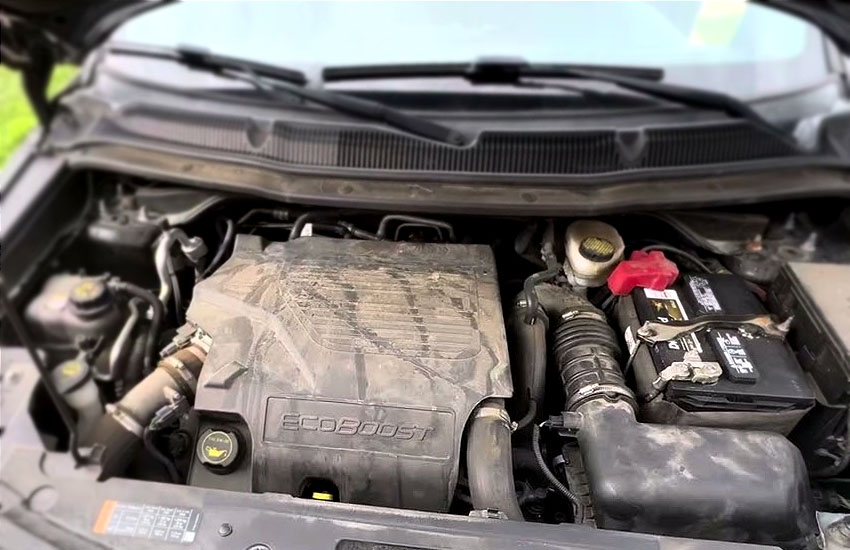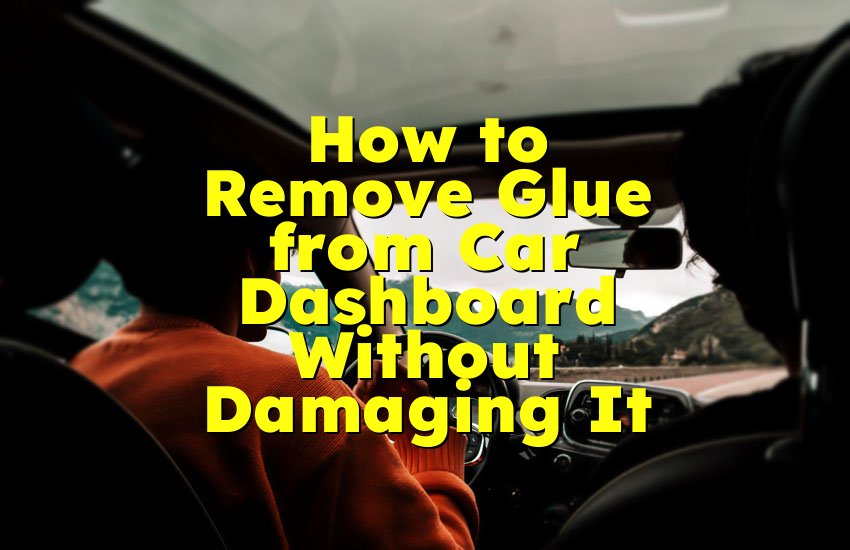As an Amazon Associate, I earn from qualifying purchases at no extra cost to you.
How to Fix Alternator Clicking Noise: A Complete Guide
Is your car making a strange clicking noise coming from the alternator? That can be a bit unsettling, right? Don't worry; you're not alone! Many car owners experience this issue, and the good news is that it's something you can address. In this article, we'll dive deep into why your alternator might be making that clicking noise, how to diagnose the problem, and, most importantly, how to fix it. Whether you're a seasoned DIYer or just someone trying to figure out what’s going on, this article will walk you through everything you need to know!

What Causes an Alternator to Make a Clicking Noise?
First things first, let’s understand what might be causing that irritating clicking noise in your alternator. Your alternator is a crucial part of your car's electrical system. It charges your car's battery and powers the electrical systems while the engine is running. If it’s making a clicking noise, that's usually a sign that something’s not right. But don’t panic! There are several possible reasons why your alternator might be clicking.
1. Worn-out Alternator Bearings
One of the most common reasons for a clicking sound is worn-out bearings. The alternator has bearings that allow it to spin smoothly as it generates power for your car. Over time, these bearings can wear down, causing a clicking or grinding noise. This is because when the bearings are damaged, the alternator may not spin evenly, leading to friction and noise.
2. Loose Alternator Belt
Another culprit could be a loose or damaged alternator belt. The belt connects the alternator to the engine, allowing it to spin and generate power. If the belt is too loose, it can cause the alternator to misfire and produce a clicking sound. In some cases, the belt may be old and cracked, which can also lead to the noise.
3. Faulty Diode or Rectifier
The alternator has a set of diodes and a rectifier that convert AC (alternating current) to DC (direct current) to charge the battery. If any of these components are faulty, they could cause the alternator to produce a clicking sound. A bad diode can result in electrical problems that affect the alternator's functioning and make it behave erratically.
4. Electrical Issues
Sometimes, clicking noises are caused by electrical problems rather than mechanical ones. For example, a short circuit or loose wiring could be causing a malfunction in the alternator's operation. This could lead to an irregular flow of electricity, causing the alternator to make a clicking sound as it tries to work.
5. Failing Voltage Regulator
The voltage regulator is responsible for maintaining a consistent voltage output from the alternator to the battery. If this component starts to fail, it can result in fluctuating voltage levels that could cause your alternator to make a clicking noise. When this happens, the alternator struggles to regulate power properly, which often leads to noise.
6. Faulty Alternator
In some cases, the clicking sound could indicate that the alternator itself is failing. If the alternator is malfunctioning, it can produce various noises, including clicking. This is typically the case when the alternator is near the end of its lifespan, and the internal components begin to break down.
How to Diagnose the Clicking Noise in Your Alternator?
Before you jump to conclusions and replace the alternator, it’s important to diagnose the clicking noise properly. Here's a step-by-step guide on how to figure out what's causing the noise.
Step 1: Listen to the Sound
The first thing you need to do is pay attention to the sound itself. Is the clicking consistent or does it vary with engine speed? Does it happen only when the engine is running, or can you hear it when the car is off? Understanding the pattern of the clicking sound will help you narrow down the cause.
- Consistent clicking with engine speed: If the clicking increases with the engine's RPM (revolutions per minute), it's likely related to the alternator belt or bearings.
- Clicking when you start the engine: If the sound happens right when you start the car and goes away after a few seconds, the issue may lie with the alternator itself.
- Intermittent clicking: If the noise is not constant and seems to come and go, this could indicate an electrical issue, such as a failing diode or voltage regulator.
Step 2: Inspect the Alternator Belt
If the noise seems to be coming from the alternator and happens when the engine is running, check the alternator belt. The belt should be tight and free of any visible wear, cracks, or fraying. A loose or damaged belt can cause slippage, leading to the clicking sound.
You can check the belt by pressing on it with your fingers. If it gives too much or seems loose, it might need adjustment or replacement. It's important to make sure the belt is aligned properly and is not rubbing against other components.
Step 3: Check for Worn-out Bearings
To check for worn-out bearings in the alternator, you'll need to remove the alternator from the engine. This step is usually only necessary if you suspect the bearings are the issue. Once the alternator is off, try spinning the pulley by hand. If you feel any grinding or resistance, the bearings are likely worn out.
Step 4: Test the Voltage Regulator
If you're hearing the clicking noise but haven't found any issues with the belt or bearings, it's a good idea to test the voltage regulator. The voltage regulator helps ensure your alternator is providing the right amount of power. If the regulator is faulty, the alternator might try to supply power erratically, leading to the clicking sound.
You can use a multimeter to measure the voltage output from the alternator. A healthy alternator should produce a consistent 13.5 to 14.5 volts when the engine is running. If the voltage is fluctuating or too low, you might need to replace the voltage regulator.
Step 5: Examine the Electrical System
Finally, if you haven't found anything mechanical that's causing the clicking noise, it could be an electrical issue. Check the wiring that connects to the alternator and the battery for loose connections or frayed wires. Sometimes, a short circuit or poor connection can cause irregular power flow, resulting in a clicking noise.
Best Ways to Fix an Alternator Clicking Noise
Now that you know what could be causing the clicking noise, it's time to fix it. Here are the most effective ways to address the problem, depending on what you've found during your diagnosis.
1. Replace the Alternator Belt
If you've found that the alternator belt is loose, damaged, or worn out, replacing it should solve the clicking noise issue. Here's how you can do it:
- Step 1: Turn off the engine and make sure the car is in park with the parking brake on.
- Step 2: Locate the alternator and find the belt. Depending on your car model, you may need to remove some components like covers or brackets to get to the belt.
- Step 3: Loosen the tension on the belt using a wrench or ratchet. There is usually a tensioner pulley that you can adjust to remove the slack.
- Step 4: Remove the old belt and check for any damage, such as cracks or fraying.
- Step 5: Install the new belt and make sure it fits snugly over the pulleys. The belt should be tight enough to prevent slippage but not so tight that it puts undue stress on the alternator.
- Step 6: Tighten the tensioner pulley and make sure the belt is properly aligned.
- Step 7: Start the engine and listen for any more clicking noises. If the sound is gone, you've successfully fixed the issue!
2. Replace Worn-out Bearings
If you've discovered that the alternator bearings are worn out, replacing them is a bit more involved. You may need to remove the entire alternator from the engine to access the bearings. Here's a general guide:
- Step 1: Remove the alternator from the engine. This typically involves disconnecting the battery, removing bolts, and loosening any belts.
- Step 2: Disassemble the alternator by removing the rear housing and rotor. You should now have access to the bearings.
- Step 3: Replace the old bearings with new ones. Make sure they're the correct size and type for your alternator model.
- Step 4: Reassemble the alternator and reinstall it back into the engine.
- Step 5: Test the alternator by starting the engine and listening for any clicking sounds.
3. Replace the Voltage Regulator
If the issue is with the voltage regulator, you'll need to replace it. Here's how:
- Step 1: Disconnect the battery to ensure there's no power running through the system.
- Step 2: Locate the voltage regulator on your alternator. In some cases, the voltage regulator is a separate part, while in others, it's integrated into the alternator.
- Step 3: Remove the faulty voltage regulator and replace it with a new one.
- Step 4: Reconnect everything and test the alternator to see if the clicking noise has stopped.
4. Repair Electrical Issues
If you've traced the clicking noise to an electrical problem, such as loose wiring, follow these steps:
- Step 1: Inspect the wiring connected to the alternator and battery. Look for any loose connections, frayed wires, or signs of a short circuit.
- Step 2: Tighten loose connections and repair any damaged wiring using electrical tape or by replacing the affected wires.
- Step 3: Test the electrical system to ensure everything is working properly.
In summary, a clicking noise from your alternator doesn't have to be a major headache. With the right tools and knowledge, you can easily diagnose and fix the issue. Whether it's a loose belt, worn-out bearings, or an electrical problem, addressing the cause early can save you a lot of trouble and money down the road.
Frequently Asked Questions
Is it safe to drive with a clicking alternator?
It is not recommended to drive with a clicking alternator for long periods, as it may indicate a serious issue. Driving with a failing alternator can leave you stranded or damage other electrical components.
Can a bad alternator cause the car not to start?
Yes, if your alternator is failing, it may not properly charge your battery. This can result in the car not starting, as the battery may be too weak to power the engine.
Do I need to replace the alternator if it clicks?
Not necessarily. If the clicking noise is due to a loose belt or worn-out bearings, you might just need to replace those parts instead of the whole alternator.
Is it difficult to replace the alternator belt?
Replacing an alternator belt can be done by most DIY car owners with basic tools. However, if you’re unsure, it's always best to consult a mechanic.
Can a clicking alternator affect my car’s battery life?
Yes, a malfunctioning alternator can cause your battery to drain quickly. If the alternator isn't charging the battery properly, the battery may run out of power faster than usual.
Is it worth repairing an alternator?
If the alternator is still in good condition and the issue is minor, repairing it might be worth it. However, if the alternator is near the end of its life, replacing it might be a better long-term solution.
Can I fix the clicking noise myself?
Yes, many alternator problems, such as a loose belt or worn bearings, can be fixed by yourself with some mechanical knowledge and basic tools.
Do I need a professional to replace the alternator?
If you're unsure or uncomfortable with car repairs, it's best to consult a professional mechanic. They'll be able to replace the alternator safely and correctly.











